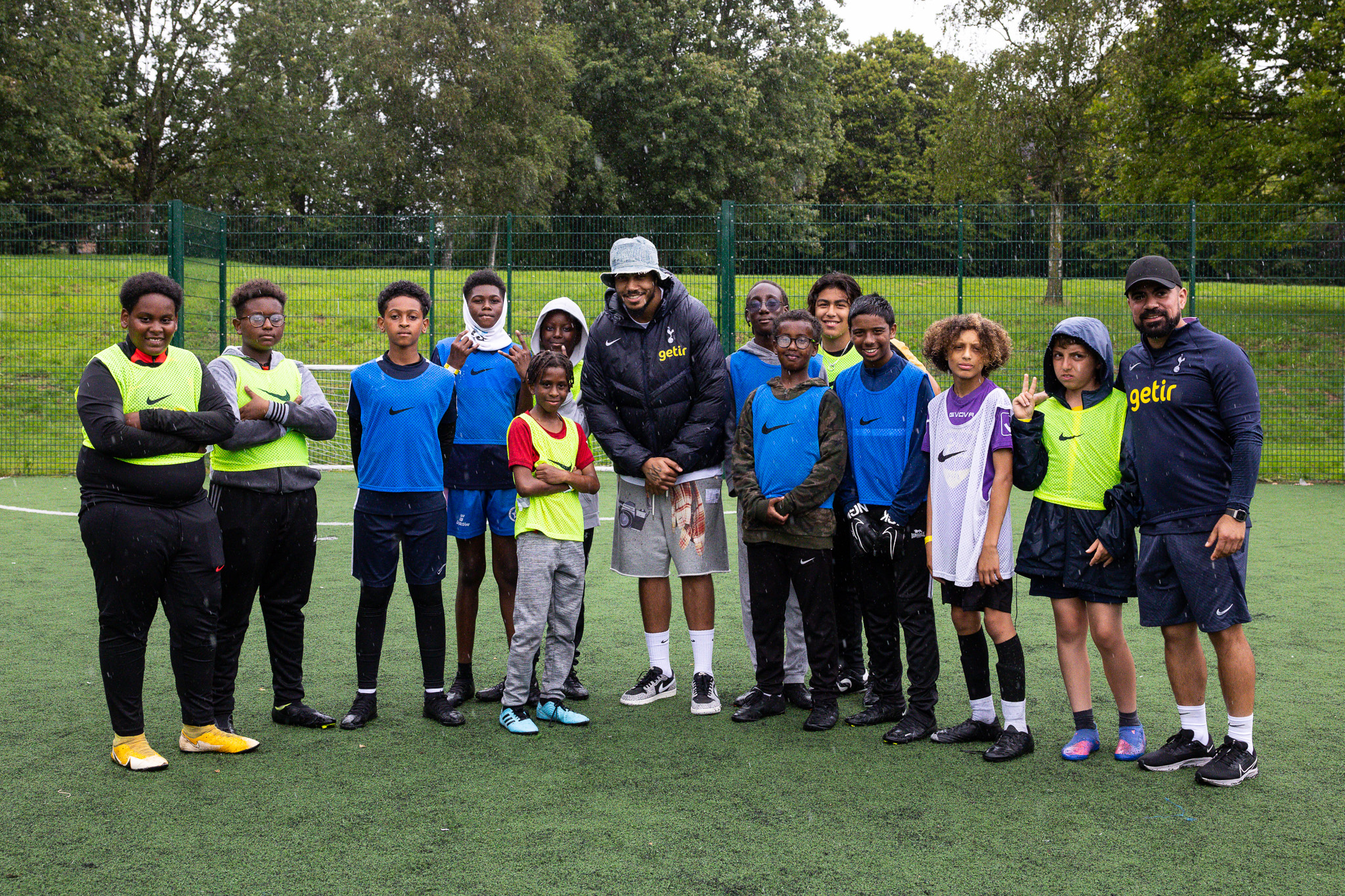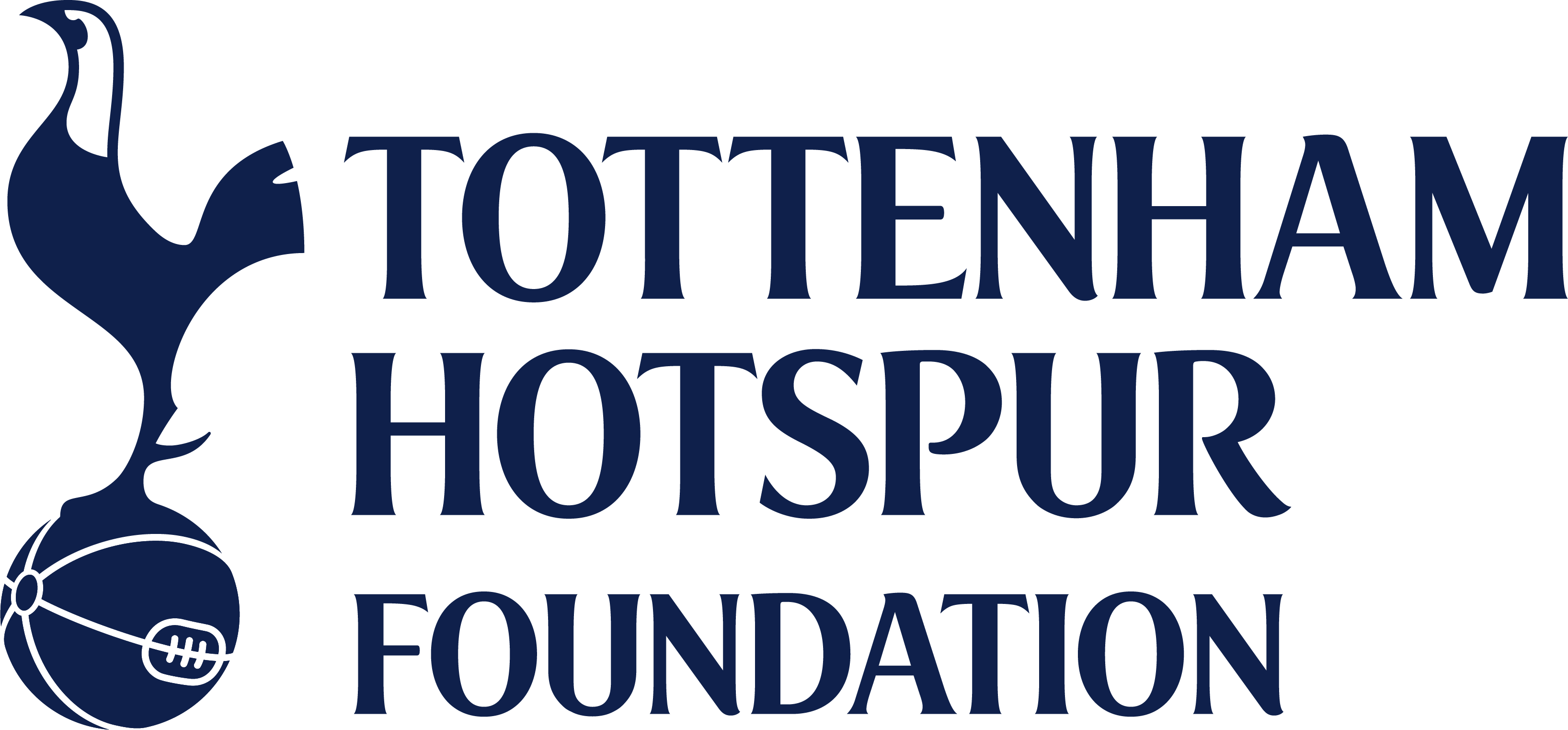
Our commitment
Tottenham Hotspur is an organisation committed to safeguarding children and adults at risk.
The Club is also committed to equality and to stopping bullying and discrimination in all its forms and supports awareness-raising campaigns such as:
– Kick It Out (equality)
– Anti-Bullying Week
– Safer Internet Day
Everyone should always have someone to talk to and we encourage contact with external support agencies such as Childline, Samaritans and the
NSPCC for further guidance if you have concerns for you or someone you know. (see directory of helpline contact numbers below)
A key priority despite COVID-19
As our nation and the world responds to the adjustments we are all having to make to our normal day-to-day lives, we ought not to forget the heightened vulnerability that many children and adults may face, due to the self-isolating and social distancing measures that are in place to reduce the spread of COVID –19 (Coronavirus). This means that some will require extra support in order to ensure that members of the family are safe and protected from abuse, exploitation and neglect.
As a Club, we continue to be focused on safeguarding children and adults from harmful situations and behaviours, working with statutory agencies such as Social Care, Police and Mental Health Services to ensure that correct intervention can be carried out to minimise the risk of harm.
Throughout this difficult time, our safeguarding team will continue to:
• offer guidance to frontline staff as they continue to engage with our players and participants through virtual platforms
• be contactable by phone and email to offer advice and guidance on safeguarding matters
• report concerns to relevant agencies
Useful links
• Ann Craft Trust Safeguarding and the Coronavirus info, tips and resources
• NSPCC support for parents on talking to a child or young person worried about coronavirus (COVID-19)
• NSPCC online resources and advice to support families
• UK safer Internet Centre: Keeping Children happy and safe online during COVID-19
• UNICEF: 6 ways parents can support their kids through the coronavirus disease (COVID-19) outbreak
Glossary
Adult at Risk: Previously termed a Vulnerable Adult. Someone aged 18 or over: who may need care services because of age, disability or illness; and who may not be able to protect himself or herself from harm.
Child: a person who has not reached their 18th birthday and includes the term ‘young person’ to denote someone who is 16+, but still under the age of 18.
Safeguarding: this means ‘promoting welfare’ and ‘protecting from harm’.
Vulnerable groups: children and adults at risk
Our Staff
Safeguarding is everyone’s business and all staff have a responsibility to share emerging and visible concerns for the safety and well-being of others. We are reflective in our attitudes, and strive to continually develop systems to ensure that the needs of the most vulnerable are considered and that there are safe spaces for their voices to be heard.
Staff working with children or adults
The Club is committed to providing a safe environment for children and adults and one way we do this is by ensuring that all staff:
• Understand and commit to our shared organisational ethos and vision on safeguarding children and adults at risk
• Are vetted and participate in role appropriate checks (DBS) as part of our safer recruitment processes
• Receive role-appropriate safeguarding training to enhance their competency and knowledge on safeguarding ma ers to inform their engagement with children or adults at risk.
• Set expectations of behaviour for activities that include respect and anti-discriminatory/anti-bullying messages.
Safeguarding Lead
Matthew Collecott (Operations & Finance Director)
The Club considers the safety and well-being of vulnerable groups as a high priority. This is represented from the Board level and permeates all aspects of the organisation. The Board has an appointed Safeguarding Lead, who is responsible for governance, ensuring that safeguarding remains a key focus for leadership and is considered in line with the whole Club’s strategic aims and direction of travel.
Head of Safeguarding and Welfare
Shauna MacAllister
The Head of Safeguarding and Welfare has overall responsibility for our safeguarding provision and arrangements. She oversees a team of safeguarding specialist staff, who work closely with children and adults at risk on various Club and Foundation activities. You can contact the Head of Safeguarding and Welfare on 07879 997839, or email a member of the safeguarding team on safeguarding@tottenhamhotspur.com
Safeguarding Officers
We have a team of Safeguarding Officers who work alongside the Head of Safeguarding & Welfare. The primary role of the Safeguarding Officer is to respond to concerns of abuse, exploitation or neglect. We will liaise with and refer to Local Authority services (police, social care etc.) to ensure best practice, contribute to keeping children safe and give adults at risk of harm safe routes out of harmful circumstances and practices.
• Jason Pedulla – Global Development – 07384 461340
• Chloe Wakeling – Women & Girls Talent Pathway – 07384810246
• Nick Boulli – Academy – 07557 652373
• Jack Percival – Academy – 07469855000
• Gary Broadhurst – Academy – 07825 176866
• Nick Hardy Pre -Academy and Development Centres – 07469 857946
• Tim Ford – Academy Safeguarding Manager – 07392 080266
• Sandra Barratt – Women & Girls Safeguarding Manager – 07384 818062
• Natalee Hibbert – Tottenham Hotspur Foundation – Safeguarding Manager – 07384 258758
• Lauren Black – Tottenham Hotspur Foundation – Designated Safeguarding Officer – 07825 090028
Policies
Tottenham Hotspur operates a wide range of activities – such as the Academy, community outreach programs via the Tottenham Hotspur Foundation and Match/ Event days – which involve people from our community and will include some of the most vulnerable in society. The Club, therefore has comprehensive safeguarding policies for children and adults at risk which are available on this page, alongside child-friendly and easy read versions.
Our safeguarding (alongside related) policies and procedures act as:
• A reminder to all our stakeholders of the value we place on the welfare and safety of children and adults.
• A guide to supporting stakeholders with procedures for reporting concerns, types/indicators of concerns and managing allegations/whistle-blowing etc.
Tottenham Hotspur Safeguarding Policies and Procedures:
• Children
• Adults
Safeguarding – Basic Awareness
If you would like to know more and have an overview of safeguarding issues for children and adults, Haringey LSCB (Local Safeguarding Children Board) has provided this short 20-minute e-learning course.
If You Have a Concern…
Reporting and escalation procedure: If you have a concern about the safety or welfare of a child or adult at risk on one of our activities, please take immediate action:
• In the first instance, speak with the person in charge of supervising the activity who will forward your concern to a Safeguarding Officer
• If you cannot speak with someone at the time, contact a member of the safeguarding team via phone (contact details listed above) or the safeguarding referral email address safeguarding@tottenhamhotspur.com.
• A member of the team will respond to your email and advise on the next best course of action
• Please note that you can concern will be managed sensitively and information will only be shared if it is necessary to ensure the safety of a child or adult at risk.
• Out of hours (after 6 pm and weekends): You can contact a helpline, such as the NSPCC, for advice (see list below). If you are concerned for your immediate safety or the safety of someone else, please dial 999 and report your concerns to police services.
General safeguarding advice
Abuse can happen anywhere – in the home or in a public place, care home or hospital. If you have a concern about someone (a child or adult) in the community, you can contact your local authority or a helpline (see below).
If you suspect or witness abuse – report it within 24 hours
• Contact your local authority children’s or adult social care
• If a crime has been committed (non-emergency), report it to your local police on 101
• In an emergency, report it to the police on 999
• NHS: Call 111 for advice and guidance with medical concerns.
Sign posting to support for adult victims and survivors of childhood abuse
Adult victims and survivors of childhood abuse within a football context can access information about the support available to them here.
NSPCC football helpline: 0800 023 2642 operating Monday to Friday 8 am to 10 pm and Saturday to Sunday 9 am to 6 pm.
The National Association for People Abused in Childhood (NAPAC) can also be contacted by calling 0808 801 0331 or by visiting their website.
Helplines for children and young people (up to the age of 18)
Emergency Services
Police / Ambulance / Fire: Call 999 for report an emergency.
Police (non-emergency): Call 101 to report a crime to local police.
NHS: Call 111 when you need medical help fast.
Helplines for children and young people (up to the age of 18)

ChildLine: Childline is a free, private and confidential place for you to be you. Whatever your worry, you can get the help you need in the way you want it.
Online and on the phone, 24/7, Childline is here to listen, talk things through and give you the information you need, whatever life throws at you.
Call 0800 1111 (24 hours / free)
Visit: childline.org.uk
Adults concerned about a child

NSPCC: If you are worried about a child and need advice or information.
The NSPCC helpline is a place adults can contact by phone or online to get advice or share their concerns about a child.
Trained helpline counsellors can provide expert help, advice and support 24/7. The service is free and you can remain anonymous.
Call 0808 800 5000 (24 hours / free)
Visit: NSPCC.org.uk
Emotional support (for both children and adults)
Samaritans: Samaritans are available round the clock, every single day of the year. Talk to us any time you like in your own way and off the record, about whatever’s getting to you.
Call us free any time on 116 123 Or email jo@samaritans.org
Visit us – find your nearest branch on Samaritans.org
Affected by crime
Victim Support: Victim Support provides free, confidential advice and practical help to anyone affected by any crime, no matter how long ago it took place, or whether it was reported to the police or not. Call free on the VS Supportline 08 08 16 89 111. Call Mon-Fri 8 pm – 8 am. Weekends 24-hour service.
Visit: victimsupport.org.uk
Older adults
The Silver Line: The Silver Line Helpline is the only national, free and confidential helpline for lonely and isolated older people; offering information, advice and friendship. Call 0800 4 70 80 90 (24 hours/free)
Visit: thesilverline.org.uk
Adults with learning disabilities
Respond: Supports children and adults with learning difficulties, and their families/carers affected by trauma and abuse.
Call Mon-Fri, 1.30pm-5pm 0808 808 0700 (Free)
Visit: respond.org.uk
Adults with sensory impairment
Action for Blind People: Practical help and support for blind people and people with visual impairments/difficulties.
Call Mon-Fri, 9 am-5 pm RNIB Helpline 0303 123 9999
Visit: actionforblindpeople.org.uk
Deafblind: Services and practical help for deafblind people.
Call 0800 132 320 (24 hours)
Visit: deafblind.org.uk
Adults with mental health problems
Mind: Help for people with mental health concerns:
Call Mon-Fri, 9am-6pm 0300 123 3393
Visit: mind.org.uk
Adults affected by dementia
Alzheimer’s Society: Help for people with dementia and their family, friends and carers.
Call 0300 222 1122
Visit: alzheimers.org.uk
If you know someone whose life may be impacted by self-neglecting behaviours and habits, speak to someone who could help.

